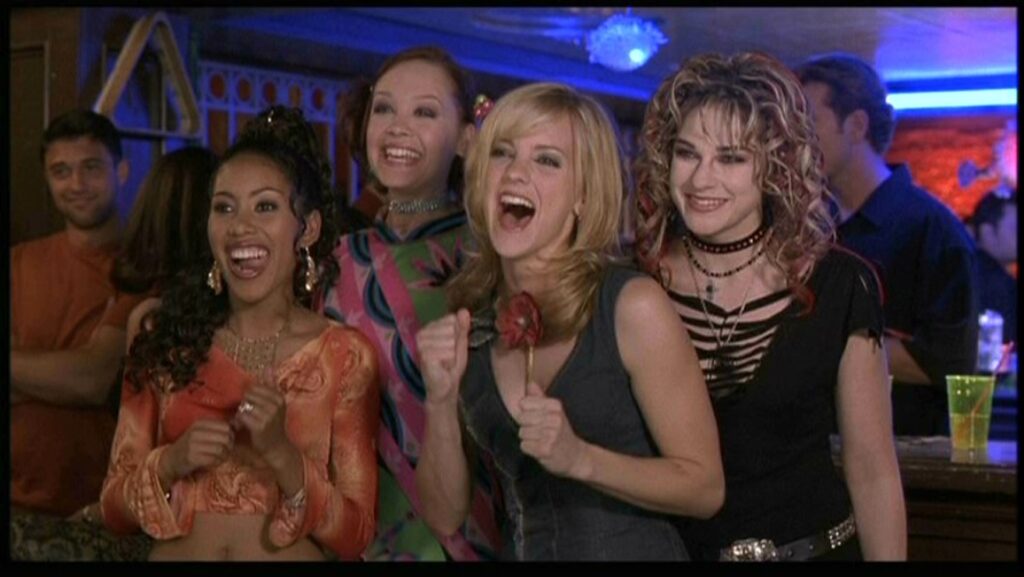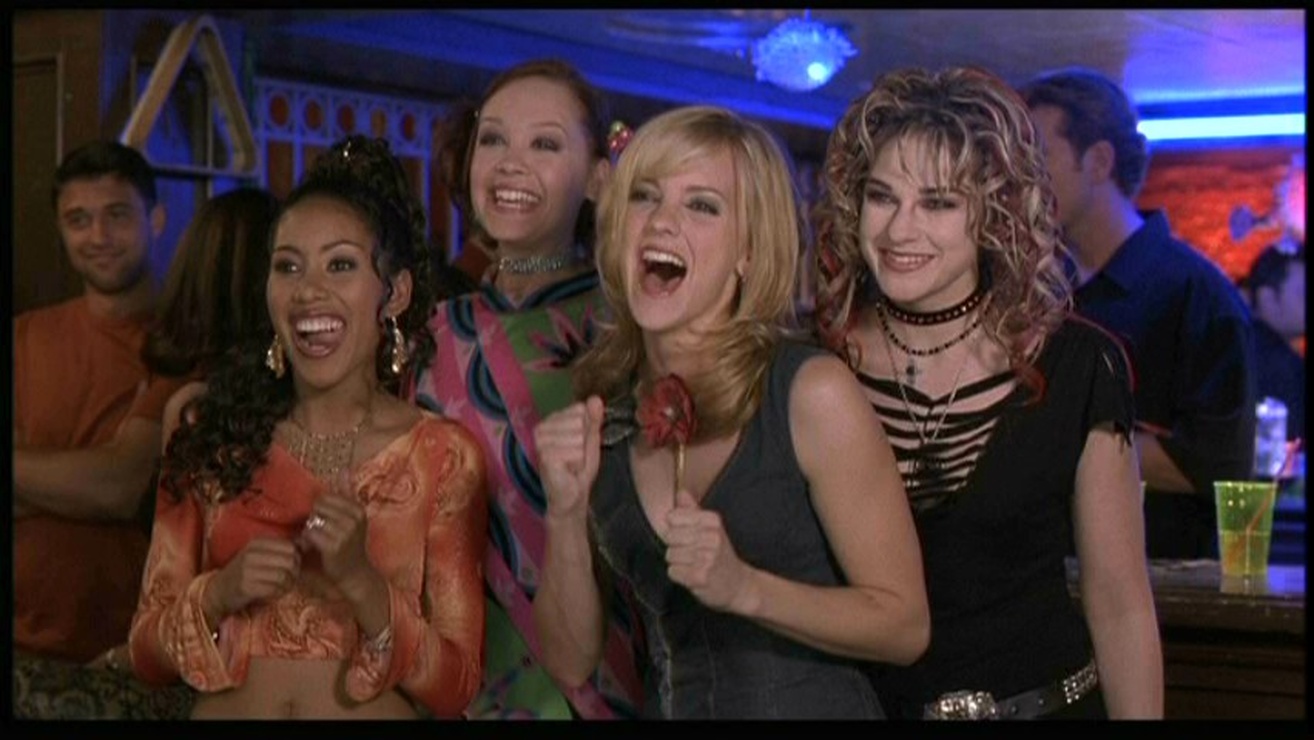
Navigating the Complexities of Attraction and Representation: Beyond the Surface of ‘Hot Chicks’
The phrase “hot chicks” is a pervasive term in popular culture, often used to describe women deemed physically attractive according to prevailing societal standards. However, the term is loaded with implications that extend far beyond simple physical appearance. This article aims to dissect the complexities surrounding this phrase, examining its historical context, its impact on societal perceptions, and the ethical considerations it raises.
Historical Context and Evolution of the Term
The objectification of women is not a modern phenomenon; it has roots that stretch back through centuries of art, literature, and social norms. The term “hot chicks,” however, represents a more contemporary manifestation of this objectification, fueled by the rise of mass media, advertising, and the internet. Initially, the term might have been used informally within specific subcultures. However, its widespread adoption by mainstream media has normalized its usage, often without considering the underlying consequences. The evolution of this term reflects a broader societal shift in how women are perceived and valued.
The Impact on Societal Perceptions
The constant bombardment of images and portrayals of “hot chicks” shapes societal perceptions of beauty and desirability. This can lead to unrealistic standards for women, contributing to body image issues, low self-esteem, and pressure to conform to narrow definitions of attractiveness. Furthermore, it reinforces the idea that a woman’s value is primarily determined by her physical appearance, overshadowing her intellect, skills, and personality. The term “hot chicks” also contributes to a culture of comparison and competition among women, fostering insecurity and undermining solidarity. The relentless focus on physical attributes detracts from the recognition of other important qualities that define a person.
Ethical Considerations and the Objectification of Women
The use of the term “hot chicks” raises significant ethical concerns related to the objectification of women. Objectification reduces individuals to mere objects of sexual desire, stripping them of their agency, dignity, and individuality. This can have far-reaching consequences, contributing to a culture of disrespect, harassment, and even violence against women. Dehumanizing language normalizes the idea that women are primarily valued for their physical appearance, making it easier to justify discriminatory or abusive behavior. The ethical implications of using such language cannot be ignored. [See also: The Ethics of Representation in Media]
The Role of Media and Advertising
Media and advertising play a crucial role in perpetuating the objectification of women through the use of terms like “hot chicks.” These industries often rely on idealized and often unattainable images of female beauty to sell products and services. This constant exposure reinforces the idea that a woman’s worth is tied to her physical appearance, leading to feelings of inadequacy and pressure to conform to unrealistic standards. Furthermore, the media often portrays women as passive objects of male gaze, reinforcing traditional gender roles and power imbalances. Responsible media practices are essential to challenge these harmful stereotypes and promote more diverse and inclusive representations of women. The over-sexualization of women in advertising is particularly problematic.
The Internet and Social Media’s Influence
The internet and social media have amplified the impact of objectifying language and imagery. The ease with which images can be shared and disseminated online means that “hot chicks” content can reach a vast audience, reinforcing harmful stereotypes on a global scale. Social media platforms often prioritize visually appealing content, further incentivizing the objectification of women. The anonymity afforded by the internet can also embolden individuals to make derogatory or harassing comments, contributing to a toxic online environment. It is crucial to promote responsible online behavior and challenge the objectification of women on social media. The spread of these images online creates a constant pressure to conform.
Challenging Harmful Stereotypes and Promoting Positive Representation
Challenging the use of terms like “hot chicks” and promoting positive representation of women requires a multi-faceted approach. This includes raising awareness about the harmful effects of objectification, promoting media literacy, and supporting initiatives that empower women and girls. [See also: Empowering Women Through Education]. It also involves advocating for more diverse and inclusive representations of women in media and advertising, showcasing their talents, skills, and achievements beyond their physical appearance. Education plays a vital role in fostering critical thinking skills and challenging harmful stereotypes. Furthermore, it is important to create spaces where women can share their experiences and support each other in resisting the pressures of objectification. The goal is to shift the focus from physical appearance to the holistic value and potential of each individual.
Promoting Media Literacy
Media literacy is essential for understanding and critically evaluating the messages conveyed through media and advertising. By developing media literacy skills, individuals can become more aware of the techniques used to objectify women and resist their influence. This includes learning to identify unrealistic or manipulated images, recognizing the underlying messages and values being promoted, and challenging harmful stereotypes. Media literacy empowers individuals to make informed choices about the media they consume and to advocate for more responsible and ethical media practices. Understanding how media shapes perceptions is key to combating harmful stereotypes. The term “hot chicks” is a prime example of a media construct that requires critical analysis.
Advocating for Diverse Representation
Advocating for diverse representation of women in media and advertising is crucial for challenging narrow definitions of beauty and promoting inclusivity. This means showcasing women of different ages, races, ethnicities, body types, and abilities. It also means portraying women in diverse roles and professions, highlighting their talents, skills, and achievements beyond their physical appearance. By promoting diverse representation, we can create a more equitable and inclusive society where all women feel valued and respected. The media has a responsibility to reflect the diversity of the population it serves. The relentless focus on “hot chicks” excludes and marginalizes countless women.
Moving Beyond Superficiality: Recognizing the Value of Individuals
Ultimately, moving beyond the superficiality of terms like “hot chicks” requires a fundamental shift in how we perceive and value individuals. This means recognizing that a person’s worth is not determined by their physical appearance, but by their character, intellect, skills, and contributions to society. It also means challenging the societal pressures that encourage women to conform to unrealistic beauty standards and promoting a culture of self-acceptance and body positivity. By focusing on the inner qualities and potential of each individual, we can create a more equitable and fulfilling society for all. The focus should be on celebrating diversity and individuality, rather than conforming to narrow definitions of beauty. The phrase “hot chicks” perpetuates a harmful and limiting view of women.
The Importance of Self-Acceptance
Self-acceptance is crucial for resisting the pressures of objectification and promoting positive body image. This means embracing one’s unique qualities and appreciating one’s body for its functionality and capabilities, rather than focusing on perceived flaws. Self-acceptance also involves challenging the negative self-talk and internal criticisms that can arise from exposure to unrealistic beauty standards. By cultivating self-compassion and self-love, individuals can build resilience to the harmful effects of objectification. It is important to remember that beauty is subjective and that true value lies in inner qualities. The relentless pursuit of being a “hot chick” can be detrimental to mental and emotional well-being.
Promoting Body Positivity
Body positivity is a movement that challenges societal beauty standards and promotes acceptance of all body types. This includes celebrating diversity in size, shape, and appearance, and challenging the idea that there is only one way to be beautiful. Body positivity also encourages individuals to prioritize their health and well-being over conforming to unrealistic beauty standards. By embracing body positivity, we can create a more inclusive and accepting society where all individuals feel valued and respected, regardless of their physical appearance. The term “hot chicks” is antithetical to the principles of body positivity. The movement aims to redefine beauty on individual terms.
Conclusion: Reclaiming Language and Redefining Value
The phrase “hot chicks” represents a complex and problematic aspect of our culture. While seemingly innocuous, it perpetuates harmful stereotypes, contributes to the objectification of women, and reinforces unrealistic beauty standards. By understanding the historical context, societal impact, and ethical considerations surrounding this term, we can begin to challenge its use and promote more positive and inclusive representations of women. Moving beyond superficiality requires a fundamental shift in how we perceive and value individuals, focusing on their character, intellect, skills, and contributions to society. It is time to reclaim language and redefine value, creating a society where all individuals feel valued and respected, regardless of their physical appearance. The future requires us to move beyond the limiting and objectifying term “hot chicks” and embrace a more inclusive and equitable view of humanity. The continued use of terms like “hot chicks” normalizes the objectification of women and perpetuates harmful stereotypes. We must strive for a society where women are valued for their intellect, skills, and contributions, not just their physical appearance. The term “hot chicks” needs to be retired from our vocabulary. [See also: The Power of Language in Shaping Perceptions]

